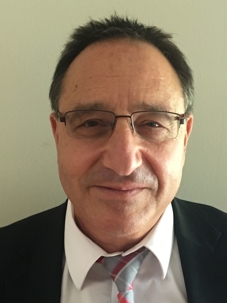WHAT IS BUSINESS & PROFESSIONS CODE SECTION 490 RELATING TO PHYSICIANS CONVICTED OF CRIMES
B&P Code Section 490 - Conviction / Suspension / Revocation
A medical license defense attorney in California will “get into the weeds” with the Business & Professions Code statutes that directly address the Suspension and Revocation of Licenses. These are B&P Code sections 490 - 494.6. The main focus is on section 490.
Business & Professions Code section 490 starts by providing a very broad ability of the board to suspend or revoke a physicians license after a criminal conviction.
(a) In addition to any other action that a board is permitted to take against a licensee, a board may suspend or revoke a license on the ground that the licensee has been convicted of a crime, if the crime is substantially related to the qualifications, functions, or duties of the business or profession for which the license was issued.
There is a limitation. The right to suspend or revoke a license due solely to the fact that there was a criminal conviction applies only “if the crime is substantially related to the qualifications, functions, or duties of the business or profession for which the license was issued.”
This is the fuzzy area that requires a lawyer. For example, if a physician is found in to have underreported his income on the sale of real estate is this practice related? What if the real estate was a medical office? Does that create a close enough connection?
B&P 490 subsection (d) - Nothing is Truly Clear !
The grey area types of questions were raised in 2006 in a case titled Petropoulos v. Department of Real Estate. This was a real estate license revocation case where the underlying crime was not a crime involving “moral turpitude”. (He pled “no contest” to a battery charge.)
In that case the court ruled in favor of the broker saying “The latter provision does not authorize DRE to take disciplinary action against a licensee convicted of a misdemeanor, unless the offense involves moral turpitude.”
To address this Section 490 had subpart (d) added:the "substantial relation" test.
(d) The Legislature hereby finds and declares that the application of this section has been made unclear by the holding in Petropoulos v. Department of Real Estate (2006) 142 Cal.App.4th 554, and that the holding in that case has placed a significant number of statutes and regulations in question, resulting in potential harm to the consumers of California from licensees who have been convicted of crimes. Therefore, the Legislature finds and declares that this section establishes an independent basis for a board to impose discipline upon a licensee, and that the amendments to this section made by Chapter 33 of the Statutes of 2008 do not constitute a change to, but rather are declaratory of, existing law.
If you want to understand what subsection (d) means, read this explanation from a court of appeal in the case titled, Sulla v. Board of Registered Nursing (2012) 205 Cal.App.4th 1195, 1205 [140 Cal.Rptr.3d 514, 522]
To comport with due process, “ ‘standards for excluding a persons from engaging in [a profession] must bear some reasonable relation to their qualifications to engage in those activities.’ ” (Ibid., italics added.) The “substantially related” standard of section 490 was initially adopted due to concerns that some statutes allowed professional discipline to be based on amorphous standards of “good moral character” or “moral turpitude,” which were not necessarily related to professional qualifications. (See Petropoulos v. Department of Real Estate (2006) 142 Cal.App.4th 554, 562–564, 47 Cal.Rptr.3d 812
Sulla v. Board of Registered Nursing (2012) 205 Cal.App.4th 1195, 1205 [140 Cal.Rptr.3d 514, 522]
So in light of subsection (d) and the Sulla case here are some issues. If a doctor is convicted of driving under the influence of marijuana might this relate to a danger of overprescribing medicines? Or a danger of the doctor working while under the influence? (After all, if he will drive under the influence might he not also work under the influence?)
A Physician Charged with a Crime Needs a Criminal Defense Lawyer with Medical Law Experience
These substantial grey areas mean that the interaction with the medical board following a conviction requires preparation before a guilty plea, no contest plea or before a jury trial which could result in a conviction. Plea negotiations themselves should focus on medical board consequences. In a world of grey self help or a criminal defense lawyer who lacks physician licensing law experience is a dangerous combination.
Our experienced physician lawyers have vast experience representing doctors in criminal matters. We have Vallejo based Daniel Russo who is a criminal defense specialist. Contra Costa lawyer Daniel Horowitz is also a specialist. (Certified by the State Bar of California, Board of Legal Specialization).

